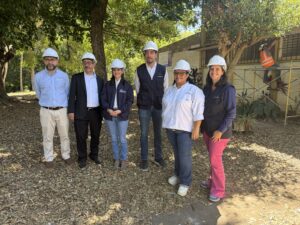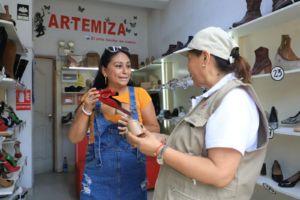The Comisión Nacional de la Micro y Pequeña Empresa (Conamype) has emerged as a fundamental pillar for the country’s economic development, providing support to more than 1,000,000 micro and small entrepreneurs. According to Paul Steiner, President of the institution, this sector has become the real engine of the national economy, driving growth and sustainability.
A recent ISSS report highlights the importance of micro and small enterprises, indicating that 89% of active employers in the country are micro and small entrepreneurs. Steiner also pointed out that small taxpayers have shown the highest growth in tax payments, reinforcing their positive impact on the country’s finances.

One of the pillars of this effort is the Economic Integration Policy for Microenterprises, in effect since october 2023. This initiative, promoted by the Government of El Salvador, provides key tools for the formalization and expansion of businesses, with the aim of breaking down the barriers that have historically limited their growth.

The President of Conamype emphasized that the basis of the Plan Cuscatlán is inclusive growth, stating that if it does not include those at the bottom, it is not sustainable. With around six million salvadorans, 95% of the population depends on micro and small businesses for their livelihood, demonstrating their crucial importance.
To ensure this growth, the Government of El Salvador has implemented accessible financing mechanisms through the Fecamype and Programype trusts. These funds allow MSMEs to invest, innovate, and become more competitive, strengthening the country’s productive base and generating more jobs and development for all.
The institution has more than 25 service points throughout the country, where technical advice, training, and administrative guidance are provided. These spaces are designed to give entrepreneurs the support they need to strengthen and expand their businesses, consolidating their role as an economic engine.







